Quartzy: the we the people edition
Happy Friday!
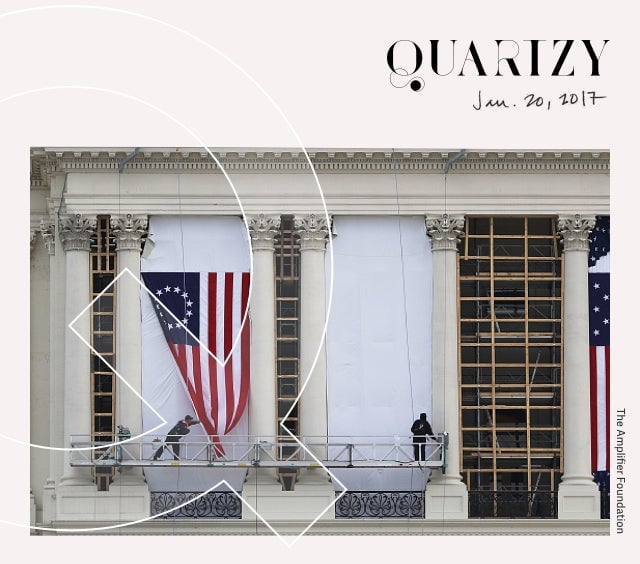
Happy Friday!
“When the status quo is fearful and scapegoating, then the most punk rock you can be is finding common ground with your fellow human beings.”
That’s what artist Shepard Fairey told PBS about We the People, a series of posters you might see at demonstrations or on social media this weekend. Fairey, who created the iconic “Hope” poster depicting Barack Obama in 2008, said that today’s political moment calls for a different approach—one that focuses on our shared humanity, rather than a single leader.

The posters are the product of a Kickstarter campaign that raised $1.3 million to get art into the hands of protesters this weekend. You can download these works, and others by artists including Jessica Sabogal and Ernesto Yerena, at high-resolution by clicking this link, or purchase them in print by buying a copy of today’s Washington Post, in which the art appears as full-page ads. If you’re in need of a sign and more of a DIY type, Daniel Midgley, an Australia-based linguist, has outlined some strategies for effective sign-writing.
Tomorrow’s Women’s March is expected to be the largest inauguration-related demonstration in US history, with hundreds of sister marches happening around the country and world. If you are participating, The Cut has you covered with a comprehensive preparation guide (Bring: a Mophie, a poncho, a buddy; Leave: your backpack), and a separate DC-specific guide with a map of warm-up stations and bathrooms. Quartz reporters will be Snapping from Quartznews today and tomorrow. Godspeed!
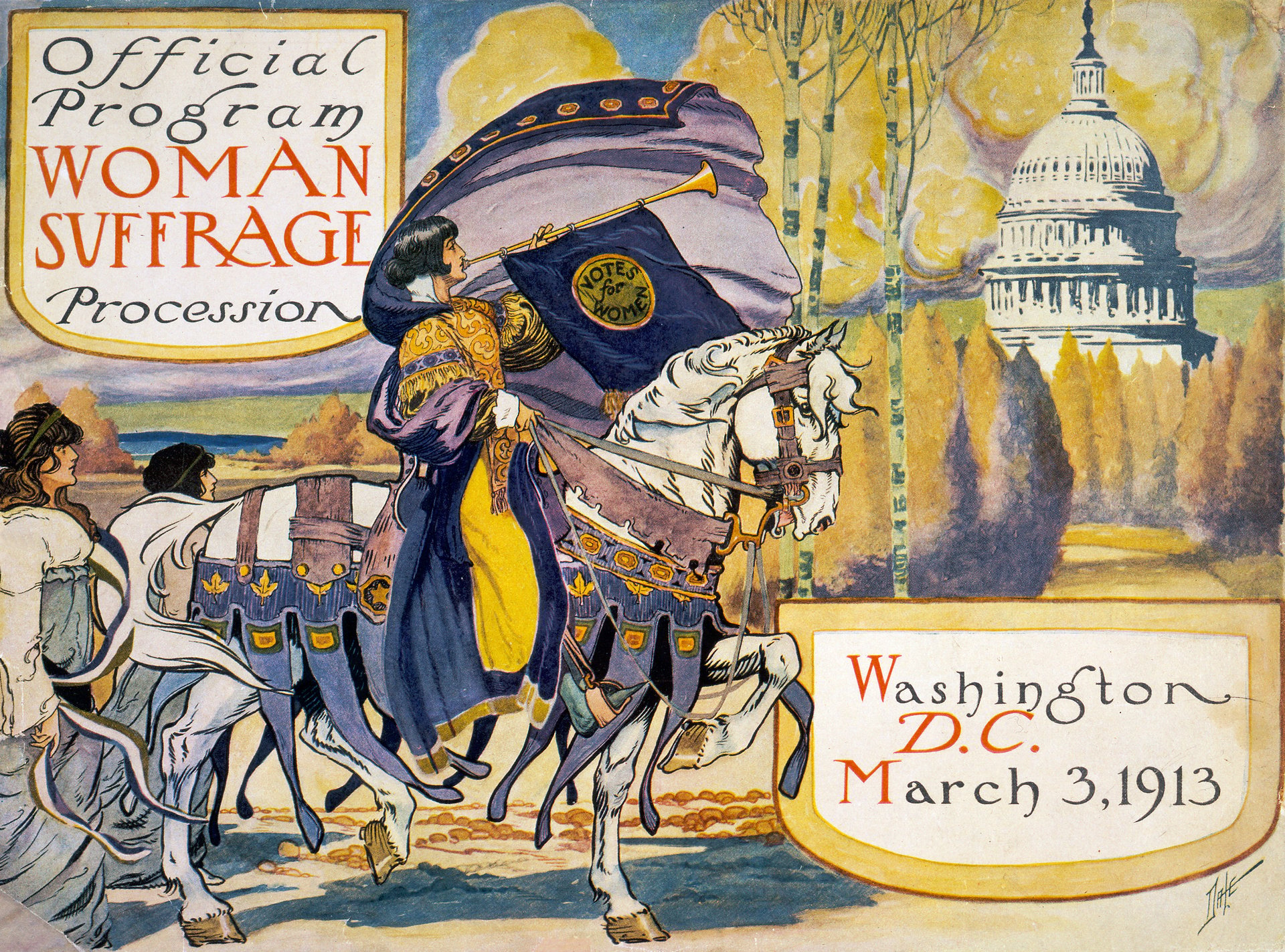

Fashion for the people, in Paris. Men’s Fashion Week is underway in Paris, and luxury powerhouses Balenciaga and Louis Vuitton both played with unexpected logos on the runway. Balenciaga designer Demna Gvasalia (who last year made DHL shirts a white-hot property) sent out sweatshirts mimicking the US primary campaign logo of Bernie Sanders, replacing the name of the Vermont senator with that of his employer.

Louis Vuitton’s Kim Jones collaborated with the New York-based streetwear titan Supreme to produce jackets, shirts, bags, and shoes co-branded with Supreme’s signature red logo and Louis Vuitton’s LV.
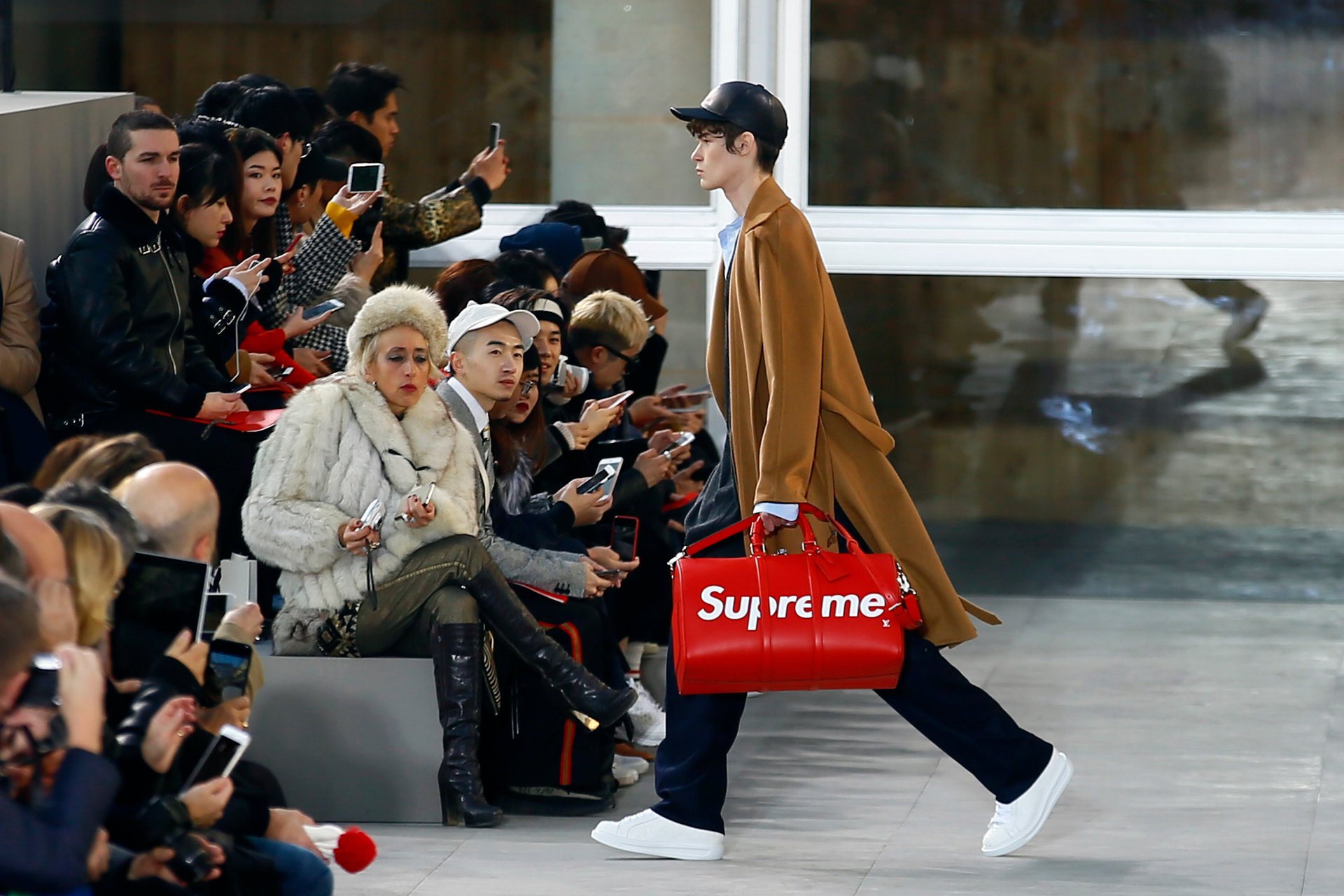
Gvasalia’s late embrace of Sanders’ logo is slightly inscrutable (Never say die?), but the reasoning at Louis Vuitton seems clear: The pieces captured the rapture of “fuccbois,” as Quartz’s Marc Bain explained, “a culture of ravenous fans concerned as much with the hype around a product as the product itself.”
One to watch—and read—from Sundance. The Park City, Utah-based film festival is abuzz over The Yellow Birds, a movie about two American soldiers who serve in Iraq, and the toll that war takes on their families. Jennifer Aniston recently compared her costar in the movie, rising star Alden Ehrenreich, to a young Leonard DiCaprio. I can see it:
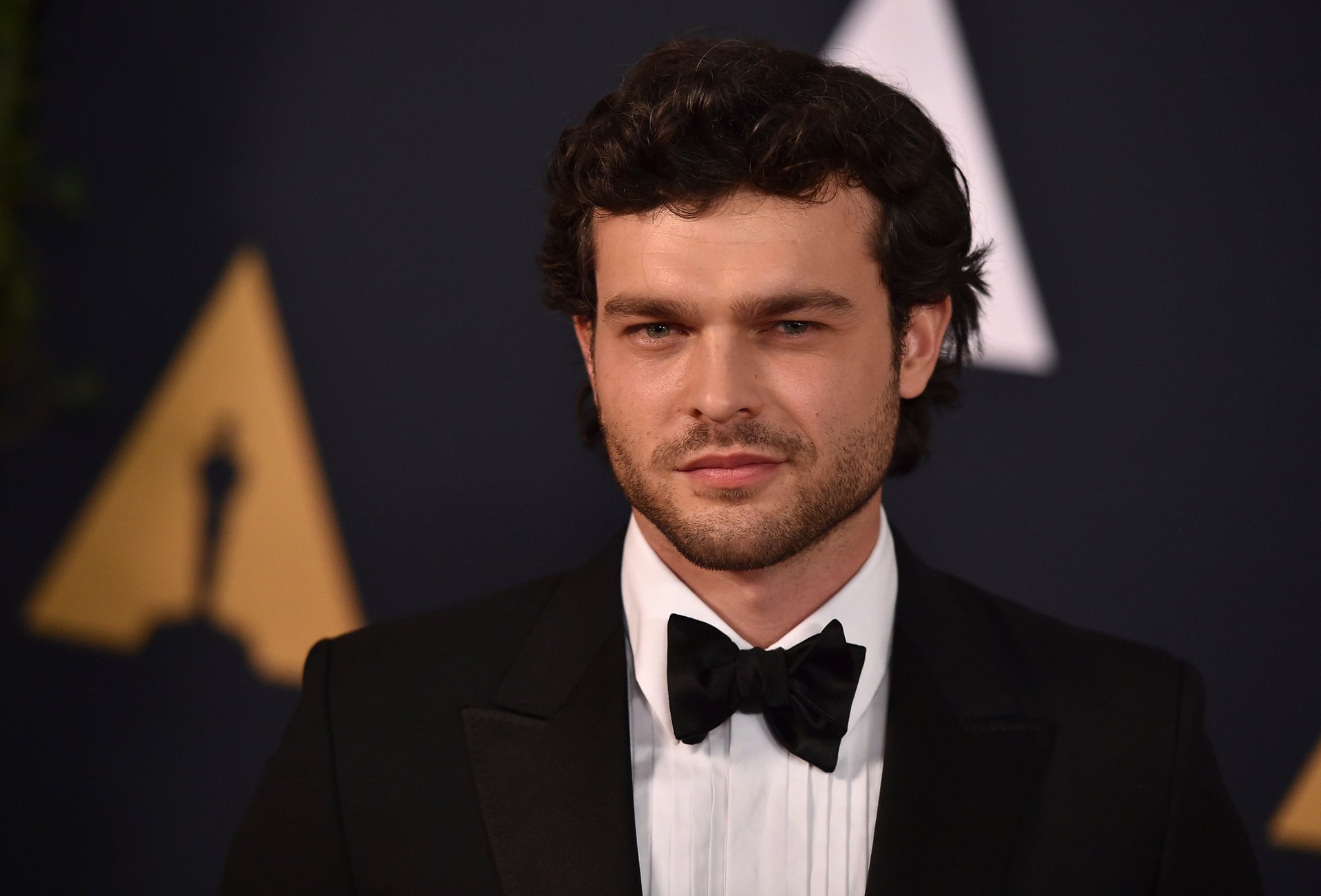
Most of us can’t watch The Yellow Birds just yet, but we can read the novel it’s based on by Kevin Powers, who served as a machine gunner in Iraq. In 2012, The New York Times called it “a first novel as compact and powerful as a footlocker full of ammo.”
To make friends as an adult, behave like a golden retriever. Not in a slobbering way, but in an enthusiastic, un-self-conscious way. Quartz’s deputy ideas editor, Sarah Todd, always struck me as a naturally outgoing “people person.” So I was shocked—shocked!—to learn she spent her early days at New York social events pretending to text, too shy to make new friends.
She soon realized she needed to turn her internal focus outward, and found a shorthand for doing it:

I would be like the friendliest dog in the world, the golden retriever. They don’t worry if their political opinions seem unsophisticated or if their bark is annoying. They just say, “Hi, hello, I’m glad you’re here,” and they bounce around to show their appreciation and suggest a game of fetch…
Now, the Golden Retriever Technique does not mean that you ignore a person’s signals or boundaries. If the golden retriever drops a tennis ball at a stranger’s feet and they don’t pick it up, the golden retriever respects that. It just moves on to a different person and asks if they want to play fetch instead. Someone always does! The key to this technique is that you don’t internalize rejection or brush-offs. You just go bounding onto the next thing.
Sarah’s full explanation is worth reading, not only because it might make you laugh out loud. When I arrived at a journalists’ happy hour on Wednesday night, I found a room full of strangers, and the Golden Retriever Technique worked a charm.
Who is William Onyeabor? The enigmatic Nigerian musician passed away this week at the age of 70, and remains a mystery in his death, as he was in his life. As Tayo Papoola wrote for Quartz, Onyeabor was a recluse who instead let his music—”equal parts lo-fi funk and hi-tech synth futurism,” produced between 1977 and 1985—do the talking.
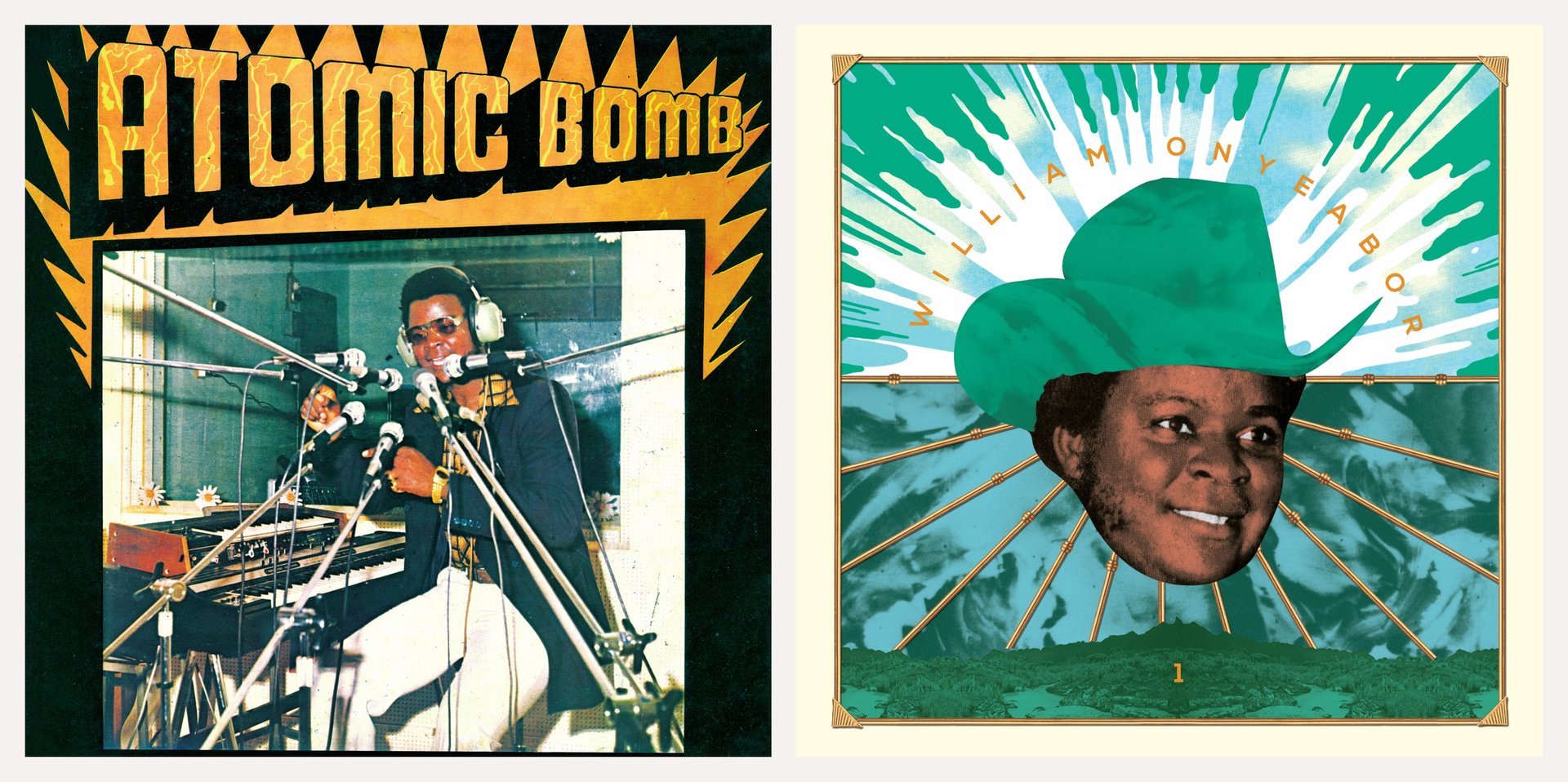
In 2013, David Byrne’s record label, Luaka Bop, released Who is William Onyeabor?, a reissue of nine of Onyeabor’s songs. In an accompanying profile of the musician, Vivien Goldman wrote how Onyeabor’s sartorial style, like his music, was completely unfettered by time or place: gold-buttoned blazers, white flares, and cowboy hats. If your curiosity is piqued, a 30-minute Vice documentary goes further down the rabbit hole. If you’re satisfied to just enjoy the music, Luaka Bop’s compilations are on Spotify.
Have a great weekend! And oh yeah, Serena Williams plays fellow American Nicole Gibbs at the Australian Open at 7pm EST tonight!
[quartzy-signature]
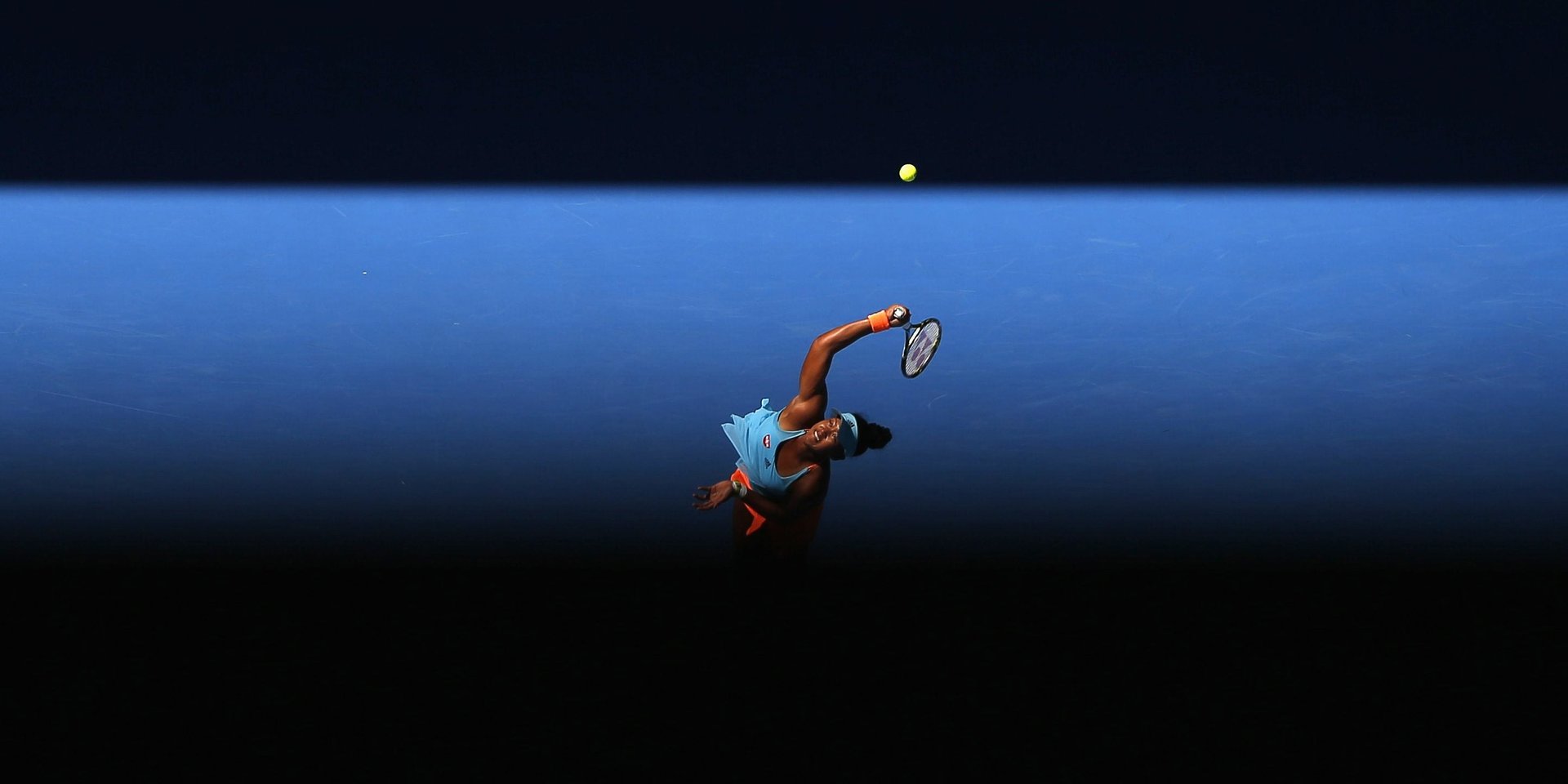
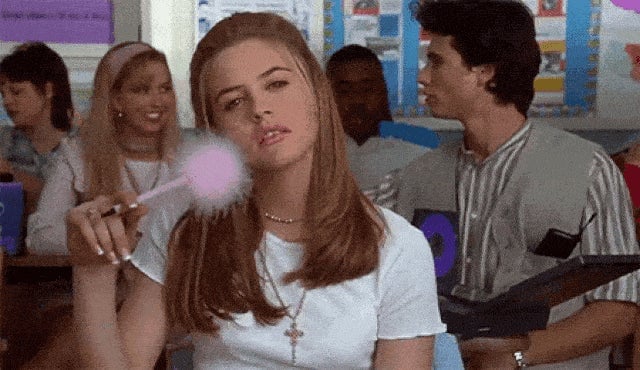
We have a favor to ask. Quartz is conducting a survey of our newsletter subscribers, and would be grateful if you would anonymously answer a handful of questions about yourself. It should be an easy one. Thank you!